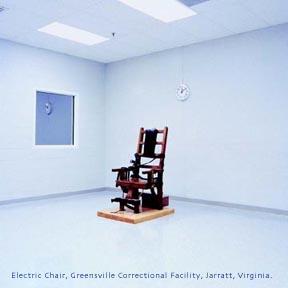Who are our present change engines?
 How did you became who you are? Do you like who you are? Do you want to change? Who you are is the sum of the experiences you went through your life, and the way you choose to deal with them. You are a product of the social environment you grew up in. IImagine how different you would be if you were born in some far exotic place. The environment you live in clearly influences who you are. But can you influence the environment that surrounds you? Can you change it? Can you make it better? Maybe, just different? I believe that you can. I'm going to tell you why and how.
How did you became who you are? Do you like who you are? Do you want to change? Who you are is the sum of the experiences you went through your life, and the way you choose to deal with them. You are a product of the social environment you grew up in. IImagine how different you would be if you were born in some far exotic place. The environment you live in clearly influences who you are. But can you influence the environment that surrounds you? Can you change it? Can you make it better? Maybe, just different? I believe that you can. I'm going to tell you why and how.
History is full of people that dared to be different. They invented. Imagined. Healed. Explored. Created. Inspired. Shocked. They push the human race forward. How different would the world be if these past change engines didn't existed? Society is a very static environment. It is traditional and suspicious of new ideas, especially about those that go against or question its most fundamental beliefs. Religion, advertising, movies and other mediums of message spreading tend to homogenate human brains. Not that those messages are good or bad, that's irrelevant for this discussion. The point is that they are the same. They encourage homogeneity. It is sad when the best you can do is a perfect imitation of those that surround you. It takes courage to go against the majority. Imagine Galileo's audacity to challenge the powerful catholic church by supporting Nicholas Copernicus idea that the Earth orbits the Sun. This on a time where one could pay the hefty price of dying on top of a woodpile while engulfed by flames. By the passioned defense of his beliefs he was condemned in 1630 to indefinite house arrest.
Who are our present change engines? You are. Whatever your life is, any time you decide to convert your thoughts into actions you are influencing your surroundings you and by doing that you are changing the world. Changing the world doesn't involve only glorious actions that you may read on the New York Times' front-page. They can be as simple as giving feedback to others, planting a tree, donating 5 dollars or speaking about something you believe in. It's just like filling a glass a drop at a time. It may take some time to see visible results but the filling is already happening. Today while driving home take a moment to think about the ways you are already influencing the world.
Are you another dot in a gray painting? Are you just like the rest? Thinking the same thoughts? Performing the same actions? We grow up with underlying messages of 'Independent Thinking Unwelcome'. Just look back on your school days. What defined your level as a student were the memorization and the pseudo-comprehension of established ideas. Why bother thinking differently when we don't get any reward for it? There are three methods that will help you to change the world. First, think independently. Defy and ignore precedent. I challenge you to do that. Be opinionated. Question the world that surrounds you. Why? Can I do it differently? Who said that? What's not necessary? What else can be done? What are the negatives? How about down instead of up? Second, take action on your ideas. As important as creating new ideas is to have the courage to take action on them, to make them real. This is where most people fall short, because they are too afraid of failing or compromising. The ideas die in their brains. Third, increase the number of change engines. Ask help from people that have ideals similar to yours. Going back to the water glass analogy, this will be like having multiple drops falling into the glass simultaneously. The results will be seen faster, which will motivate more people to join in, creating a chain reaction. The secret resides on the powerful consequence that the sum of all our actions can have!
It is historically proven that one single person's ideas and passions can change the world. You have that power inside of you. Use it. Give something back. As Mohandas Gandhi said, be the change you want to see. Go change the world!

